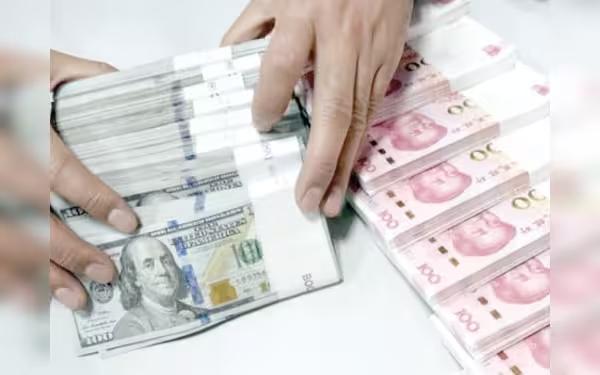Thursday, July 4, 2024 06:31 PM
Muhammad Aurangzeb to Address Economic Challenges in Pakistan
- IMF bailout requirements necessitate immediate action on debt sustainability
- Upcoming budget to focus on tax reforms, sector taxes, and currency devaluation
- Government prioritizes reducing circular debt, increasing tax revenues, and attracting investments
 Image Credits: tribune_pk
Image Credits: tribune_pkPakistan faces economic challenges as IMF presents stringent bailout requirements. Muhammad Aurangzeb to address debt sustainability, tax reforms, and attracting investments for economic stability.
Pakistan is currently grappling with economic challenges as the International Monetary Fund (IMF) has presented policy recommendations to the government. The IMF's bailout requirements are stringent, necessitating immediate action to address Pakistan's debt sustainability. Banker-turned-economic czar Muhammad Aurangzeb is set to address the coalition government led by Prime Minister Shehbaz Sharif, despite potential opposition from non-cabinet political parties.
The upcoming budget will focus on key areas such as broadening the tax base, penalizing non-filers, eliminating exemptions, and imposing taxes on various sectors. Measures like raising gas and electricity tariffs, securing parliamentary budget approval, and potential currency devaluation are also on the agenda. Collaboration with China on debt restructuring and bilateral loans is deemed crucial for Pakistan's economic stability.
To tackle economic challenges effectively, the government aims to reduce circular debt, increase tax revenues, and attract foreign investments. Streamlining the Federal Board of Revenue, attracting Gulf investments, and privatizing state-owned enterprises like Pakistan International Airlines are among the priorities.
The government's strategy includes accelerating economic growth through tax reforms, promoting export-oriented industries, enhancing law enforcement, reducing bureaucracy, and investing in technology and education. Addressing inefficiencies in power distribution companies and restructuring the railway system are also vital components of the economic recovery plan.
Efforts are underway to ease the tax burden on the middle class and small and medium enterprises (SMEs) while increasing taxes on luxury sectors like real estate. The government plans to offer investment opportunities to overseas Pakistanis and prioritize domestic projects over foreign investments to boost the economy.
Stability and strategic planning are paramount for Pakistan's economic recovery. Effective governance and sustainable policies are essential to attract global investors and ensure long-term growth for the country.













